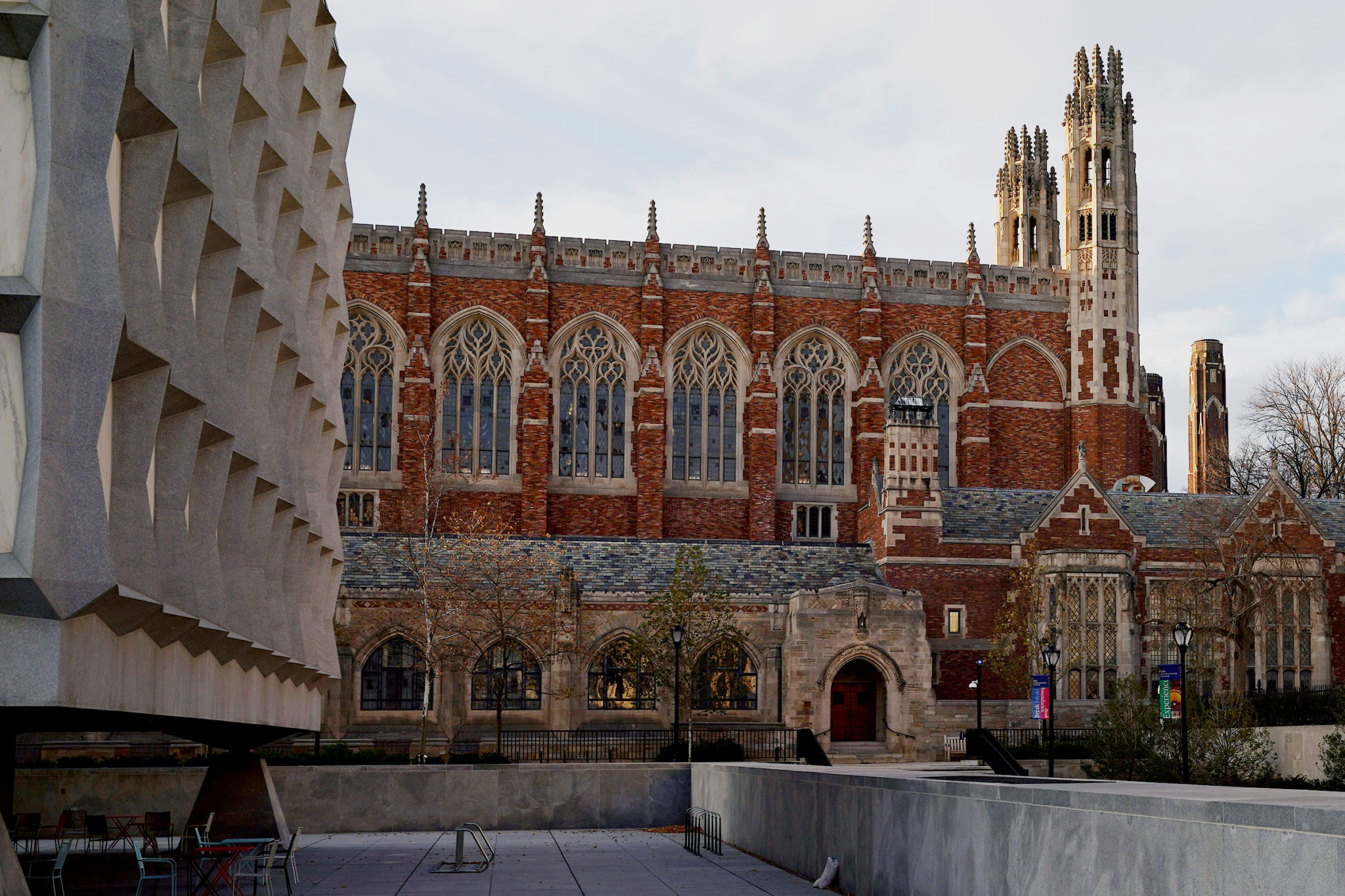Judge denies plaintiffs’ anonymity in Yale Law School case
Judge Merriam denies two plaintiffs anonymity in their lawsuit against Yale Law School

Tim Tai, Staff Photographer
Sierra Stubbs LAW ’23 and Gavin Jackson LAW ’22 will not be able to proceed anonymously in their suit against three Yale Law School administrators, a Connecticut judge ruled earlier this month.
While the two students’ names have been published in media outlets, including the News, over the last several months, they had been participating in the suit anonymously until Judge Sarah Merriam denied their application to continue doing so on Jan. 18. Stubbs and Jackson allege that three Yale Law School officials — Dean Heather Gerken, Law School Associate Dean Ellen Cosgrove and Director of Diversity, Equity & Inclusion Yaseen Eldik — “blackball[ed]” them from job opportunities after they refused to endorse a statement in the ongoing investigation against law professor Amy Chua.
In her decision, Merriam wrote that the lawsuit brought by the students does not contain highly sensitive matters that would warrant the protection of anonymity, but that they are merely concerned with reputational harm and lost economic or professional opportunities. They have similarly failed to demonstrate a reasonable concern for retaliation, Merriam wrote.
“Plaintiffs, each of whom is or was a law student, should appreciate that ‘litigation is quintessentially public and public disclosure is in general an inherent collateral consequence of litigation,’” Merriam wrote in the decision. “Accordingly, having balanced plaintiffs’ interest in anonymity against the public interest in disclosure, disclosure is warranted.”
University spokesperson Karen Peart, writing on behalf of the University’s lawyers, affirmed Yale’s initial position that the lawsuit is “legally and factually baseless, and the University will offer a vigorous defense.” She did not provide further comment.
The plaintiffs are suing the officials on the grounds of breach of contract, intentional interference with prospective business relationships and defamation, among other grounds. They are seeking punitive damages of at least $75,000 and compensatory damages of at least $75,000, as well as other monetary rewards.
According to the complaint, Stubbs and Jackson were the main subjects of the 20-page dossier of emails and text messages which became central to the Chua investigation, as they were the law students who allegedly were invited to Chua and law professor Jed Rubenfeld’s private residence, in violation of certain Law School restrictions. When the Law School administration became aware of the dossier, the complaint alleges that Cosgrove and Eldik pressured the two students to substantiate the claims in the dossier by submitting a formal complaint against Chua.
Stubbs and Jackson were seeking to proceed in the lawsuit under the pseudonyms of Jane and John Doe, respectively, in order to protect themselves from further retaliation. They argued that the case involves sensitive matters under which they should be granted anonymity.
Following the decision from Merriam, John Balestriere LAW ’98, Jackson and Stubbs’s attorney, wrote in an email to the News that “while we believe that our clients should have been able to proceed pseudonymously, we of course respect the Court’s decision, and look forward to proceeding with the case.”
In her decision, Merriam further argued that the publication of the students’ names in various media outlets undermines their claim for anonymity.
“[The] plaintiffs’ identities have not been kept confidential,” Merriam wrote. “John Doe in particular has been publicly identified by various media outlets.”
David Lat LAW ’99, the author of “Original Jurisdiction” — a newsletter about law and the legal profession — noted that the decision does not significantly alter the trajectory of the case. He also surmised that Stubbs and Jackson were likely not significantly invested in maintaining their anonymity.
“The plaintiffs would have preferred to use pseudonyms, but now that their request has been denied, they have filed an amended complaint under their own names — which suggests that this wasn’t really a big deal to them in the first place,” Lat noted. “If they truly cared about remaining pseudonymous, they could have dropped their suit. But they did not.”
This decision comes just as the University reaffirmed its confidence in Gerken as dean, appointing her for a second five-year term.
“Gerken’s reappointment, including how quickly it was made, suggests that the University is not hugely worried about this litigation,” Lat continued. “Yale appears to have concluded that any risks from this lawsuit are outweighed by the benefits of having Dean Gerken remain in office for a second term.”
The defendants have to respond to the amended complaint by Feb. 14.







